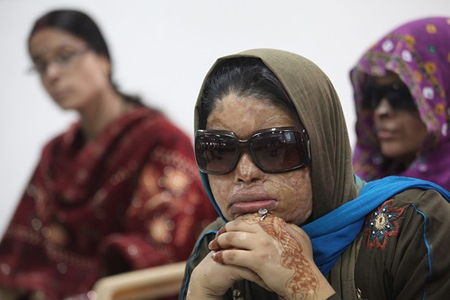 New Delhi, Jul 20: Left with little hope of leading a normal life after having acid flung at her, Rupa, a girl in her 20s, is now gearing up set up her own boutique thanks to an initiative by Chaanv- a rehabilitation centre that began operations here last year.
New Delhi, Jul 20: Left with little hope of leading a normal life after having acid flung at her, Rupa, a girl in her 20s, is now gearing up set up her own boutique thanks to an initiative by Chaanv- a rehabilitation centre that began operations here last year.
Located in Laxmi Nagar, the centre is a first of its kind in the country that offers shelter to acid attack survivors undergoing treatment in the national capital.
Rupa credits Chaanv and the 'Stop Acid Attacks' campaign founded by Alok Dixit to helping her undergo a two-month training in dress designing from a mechanical engineer.
Many others like Rupa, all survivors of acid attacks are now reaching out to the centre, which is now managed and run by the acid attack fighters who have recovered with grit.
Survivors gathered here recently and shared their stories at a discussion, which highlighted gory tales of acid attack and the need of regulation to control the open sale of acid that, activists say will help curb the violence against women.
Laxmi Saa, winner of International Women of Courage Award narrated her painful story where her jilted lover threw a glass of acid on her face at after she refused to accept his proposal in 2005.
"It has been a tough journey since then," says Laxmi.
She has gone through seven major surgery after which she filed a PIL in the Supreme Court to regulate the sale of acid at the retail shops. The Court, passed an order on July 18, 2013, prohibiting the sale of acid without license making it mandatory for retailers to maintain a record of customers, has not been implemented by the Centre.
Buyers are bound to produce identification and address proofs and should be above the age of 18. Additional to this, the dealers will have to submit details of sale to the local police within three days of the transaction.
"Acid is being sold openly in the market. Anybody and everybody can buy it without any regulation. The government is least interested and does not pay heed to the order passed by the Apex Court. We thus want stringent laws to regulate the sale of acids," says Alok Dixit, founder member of Stop Acid Attacks campaign.





Comments
Add new comment